Dickson’s Dorsai! to Hit Small Screen
 Occasionally a bit of book-to-film news seems to come out of nowhere and create some genuine surprise. So, amidst reports of this-or-that being remade, rebooted, retread, reimagined, or reduxed (what is it this week? Lord of the Ring Tones? Aliens vs. Predator vs. Chucky vs. Tony Montana? T.J. Hooker on Mars?) it seems there is actually an original, never done before, not part of a hot franchise redo, SF book adaptation slated for television. Gordon R. Dickson’s Childe Cycle, better known by the name of the first book in the series, Dorsai!, is being made into a live action series by MDR productions (official site). Announcements to that effect can be read at SFsignal and SF Crowsnest.
Occasionally a bit of book-to-film news seems to come out of nowhere and create some genuine surprise. So, amidst reports of this-or-that being remade, rebooted, retread, reimagined, or reduxed (what is it this week? Lord of the Ring Tones? Aliens vs. Predator vs. Chucky vs. Tony Montana? T.J. Hooker on Mars?) it seems there is actually an original, never done before, not part of a hot franchise redo, SF book adaptation slated for television. Gordon R. Dickson’s Childe Cycle, better known by the name of the first book in the series, Dorsai!, is being made into a live action series by MDR productions (official site). Announcements to that effect can be read at SFsignal and SF Crowsnest.
Not a great deal of information on it yet, just some nice art and story boards, and general background. The Dorsai! universe is an interesting choice, from a series of books I enjoyed but one that felt very disjointed and fragmented due to the long time separating books, the somewhat cobbled together nature of the earlier ones, and similar issues. I have a bit of a hard time imagining the tv series (or mini-series more likely) picking up on future books as, if I recall correctly, they mostly all jump ahead in time and present an entirely new cast of characters.
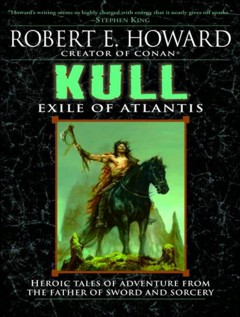 I wanted to point all of you to the fine series of articles over on
I wanted to point all of you to the fine series of articles over on 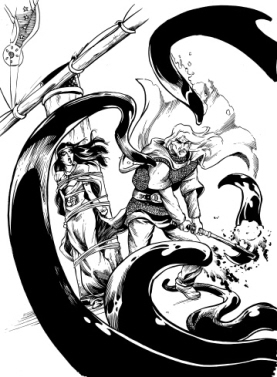 The Sorcerer’s Guild announced this week that John C. Hocking’s “The Face in the Sea” (from Black Gate 13) has been nominated for the Harper’s Pen Award (formerly the Ham-Sized Fist Award).
The Sorcerer’s Guild announced this week that John C. Hocking’s “The Face in the Sea” (from Black Gate 13) has been nominated for the Harper’s Pen Award (formerly the Ham-Sized Fist Award). There’s nothing like being faced with your own weirdness.
There’s nothing like being faced with your own weirdness.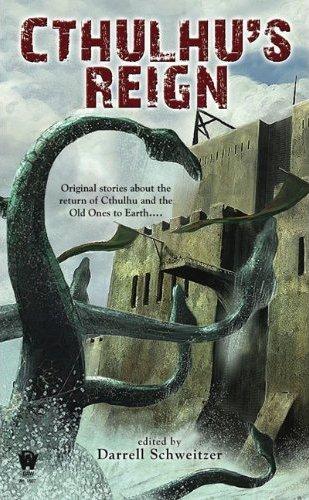
 Most pulp writers of the 1930s were itching to break into the hardcover book market. Since reprints of pulp stories in book form were rare at the time, these writers did not expect that their work for the newsstands would survive past an issue’s sell-date. They felt comfortable re-working and expanding on them to create novels. Raymond Chandler famously called his process of novelizing his already published work as “cannibalizing.” He welded together different short stories, often keeping large sections of text intact with only slight alterations. Other authors took ideas that they liked, or else felt they could do more justice to in the novel format, and enlarged them into books without text carry-over. Robert E. Howard used “The Scarlet Citadel” as a guide for The Hour of the Dragon. And Cornell Woolrich turned many of his short stories into novels. “Face Work” became The Black Angel. “Call Me Patrice” became I Married a Dead Man. “The Street of Jungle Death” became Black Alibi. And “Speak to Me of Death” became Woolrich’s most depressing novel (which is really saying something), Night Has a Thousand Eyes.
Most pulp writers of the 1930s were itching to break into the hardcover book market. Since reprints of pulp stories in book form were rare at the time, these writers did not expect that their work for the newsstands would survive past an issue’s sell-date. They felt comfortable re-working and expanding on them to create novels. Raymond Chandler famously called his process of novelizing his already published work as “cannibalizing.” He welded together different short stories, often keeping large sections of text intact with only slight alterations. Other authors took ideas that they liked, or else felt they could do more justice to in the novel format, and enlarged them into books without text carry-over. Robert E. Howard used “The Scarlet Citadel” as a guide for The Hour of the Dragon. And Cornell Woolrich turned many of his short stories into novels. “Face Work” became The Black Angel. “Call Me Patrice” became I Married a Dead Man. “The Street of Jungle Death” became Black Alibi. And “Speak to Me of Death” became Woolrich’s most depressing novel (which is really saying something), Night Has a Thousand Eyes.
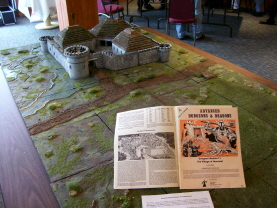
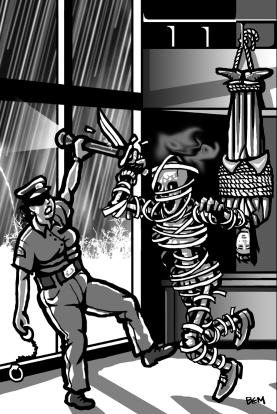 The sarcophagus was empty, the mummy was on the loose, and Corporate expected her to deal with it. Seemed like a lot to ask, especially for minimum wage.
The sarcophagus was empty, the mummy was on the loose, and Corporate expected her to deal with it. Seemed like a lot to ask, especially for minimum wage. I freely cop to having the sort of geeky sense of humor that is immediately triggered by someone coming up with the perfect movie quote for any given situation. For that matter, the level of hilarity is proportionately magnified by the obscurity of the quote, how quickly I was able to identify it, and any subtle, “insider” references the quote might invoke.
I freely cop to having the sort of geeky sense of humor that is immediately triggered by someone coming up with the perfect movie quote for any given situation. For that matter, the level of hilarity is proportionately magnified by the obscurity of the quote, how quickly I was able to identify it, and any subtle, “insider” references the quote might invoke.